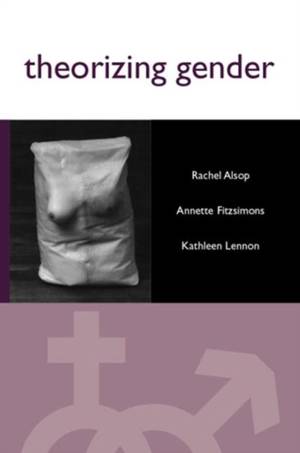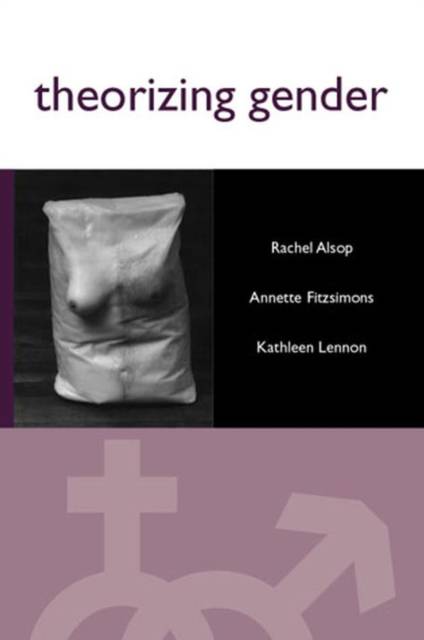
Bedankt voor het vertrouwen het afgelopen jaar! Om jou te bedanken bieden we GRATIS verzending (in België) aan op alles gedurende de hele maand januari.
- Afhalen na 1 uur in een winkel met voorraad
- In januari gratis thuislevering in België
- Ruim aanbod met 7 miljoen producten
Bedankt voor het vertrouwen het afgelopen jaar! Om jou te bedanken bieden we GRATIS verzending (in België) aan op alles gedurende de hele maand januari.
- Afhalen na 1 uur in een winkel met voorraad
- In januari gratis thuislevering in België
- Ruim aanbod met 7 miljoen producten
Zoeken
Theorizing Gender
An Introduction
Rachel Alsop, Annette Fitzsimons, Kathleen Lennon
Paperback | Engels
€ 56,45
+ 112 punten
Uitvoering
Omschrijving
This accessible text aims to give a theoretical overview of approaches to gender. The book discusses the major theories concerned with the ways in which we 'become engendered', and explains and evaluates naturalist, psychoanalytic, materialist and post-structuralist accounts.
Tensions between these different approaches are acknowledged, but stark polarities are resisted. Throughout the book it is recognized that becoming gendered implicates and is implicated by other aspects of social becoming. The work of Judith Butler is discussed in detail and its importance and limitations spelt out in key chapters on sexuality, the body, transgendering and political agency. Debates between 'queer' approaches to gender and those prioritizing sexual difference are also brought to the fore.
Theorizing Gender aims to provide a framework for weaving together what are often viewed as opposing directions of thought. Students and researchers in sociology, philosophy and gender studies, and all those with an interest in gender will find it an invaluable resource.
Tensions between these different approaches are acknowledged, but stark polarities are resisted. Throughout the book it is recognized that becoming gendered implicates and is implicated by other aspects of social becoming. The work of Judith Butler is discussed in detail and its importance and limitations spelt out in key chapters on sexuality, the body, transgendering and political agency. Debates between 'queer' approaches to gender and those prioritizing sexual difference are also brought to the fore.
Theorizing Gender aims to provide a framework for weaving together what are often viewed as opposing directions of thought. Students and researchers in sociology, philosophy and gender studies, and all those with an interest in gender will find it an invaluable resource.
Specificaties
Betrokkenen
- Auteur(s):
- Uitgeverij:
Inhoud
- Aantal bladzijden:
- 288
- Taal:
- Engels
Eigenschappen
- Productcode (EAN):
- 9780745619446
- Verschijningsdatum:
- 3/06/2002
- Uitvoering:
- Paperback
- Formaat:
- Trade paperback (VS)
- Afmetingen:
- 151 mm x 231 mm
- Gewicht:
- 421 g

Alleen bij Standaard Boekhandel
+ 112 punten op je klantenkaart van Standaard Boekhandel
Beoordelingen
We publiceren alleen reviews die voldoen aan de voorwaarden voor reviews. Bekijk onze voorwaarden voor reviews.









